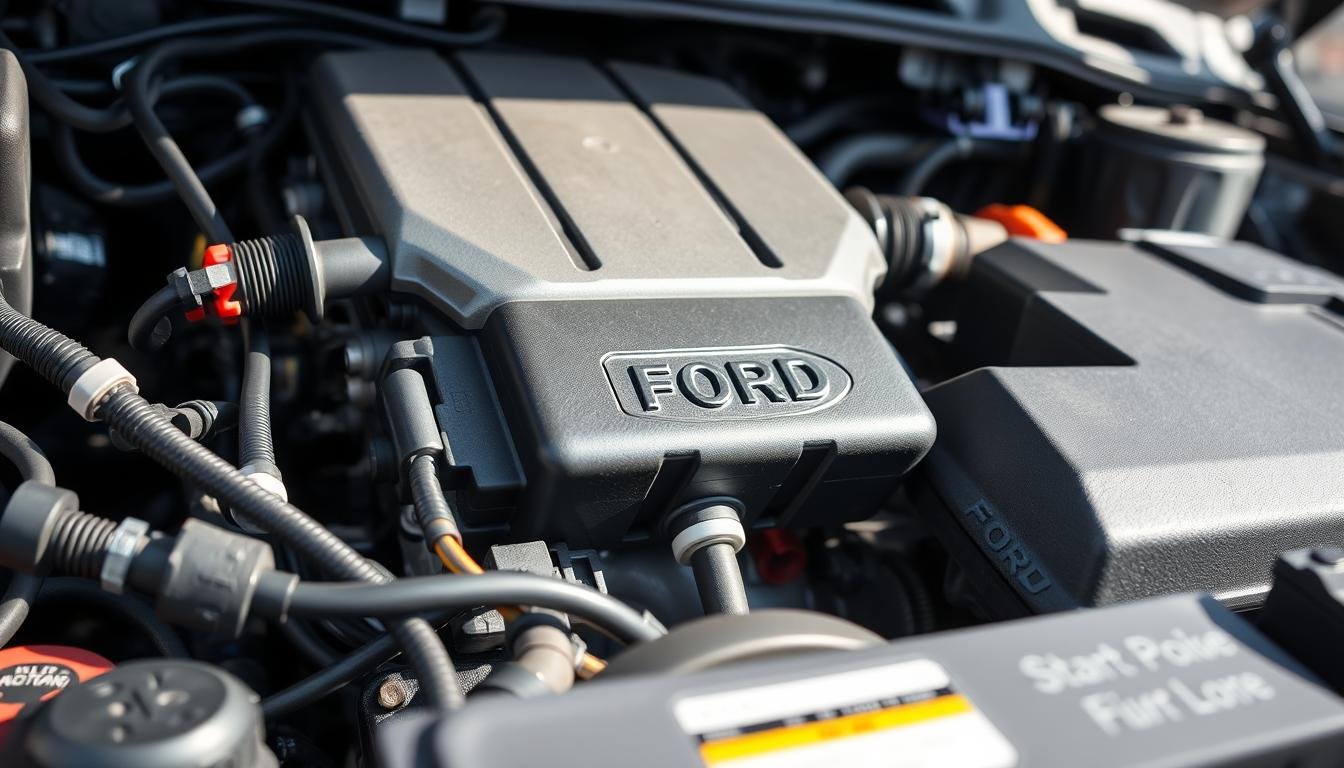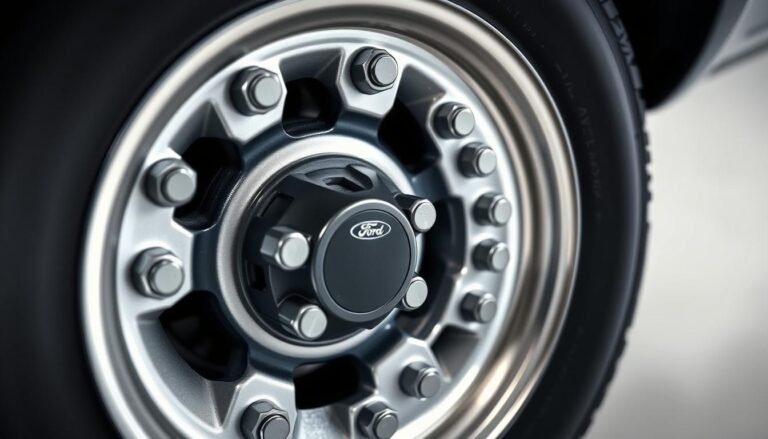Ford F150 Pcm Failure Symptoms & Diagnosis
Wondering how to tell if your Ford F150’s PCM is failing? It’s vital to spot these signs to keep your truck running well.
The PCM controls important parts like the engine and transmission. If it’s not working right, your truck might use more gas and might not drive as well.
We’ll show you what to watch out for and how to check if your PCM is the problem.
You’ll learn about common issues, like the check engine light coming on or the truck using too much gas.
Tips on using tools to diagnose problems and checking the PCM yourself are included.
We’ll also talk about why PCM failures happen and how to fix or replace them. By the end, you’ll know how to keep your F150 in top shape.
What is The Importance of The Ford F150 Powertrain Control Module (PCM)?
The Ford F150’s powertrain control module, or PCM, is essential for your vehicle’s performance. It’s like the brain of your engine.
It handles many crucial tasks to keep your truck running well. The PCM keeps an eye on sensor inputs and controls fuel injection and emissions.
It adjusts things in real time to boost performance. If the PCM isn’t working right, your truck could run into big problems.
This might harm fuel efficiency and overall function. And if ignored, these issues can lead to serious engine damage.
Knowing how important the PCM is can help you spot problems early. This means you can act fast to fix them. Doing this saves you time and money in the long run.
What are Ford F150 PCM Failure Symptoms?
If you think something might be wrong with your Ford F150, knowing the symptoms of a failing PCM is important.
There are several signs that the Powertrain Control Module (PCM) might not be working right. Spotting these signs early can keep your truck running smoothly and safely.
Check Engine Light Activation
One big clue that your PCM might be failing is if the check engine light comes on. This light might turn on when there’s something wrong with the PCM.
Running a diagnostic test can tell you if the PCM is the issue.
Decreased Fuel Efficiency
A broken PCM can mess up the mix of fuel and air, making your truck use more gas. If your F150 starts guzzling more gas than normal, it might mean the PCM needs a closer look.
Engine Stalling and Hesitation
Sometimes, a faulty PCM makes the engine stall or hesitate when you try to speed up.
These problems can make driving a hassle and even dangerous. Knowing these symptoms can help you act fast to fix your truck.
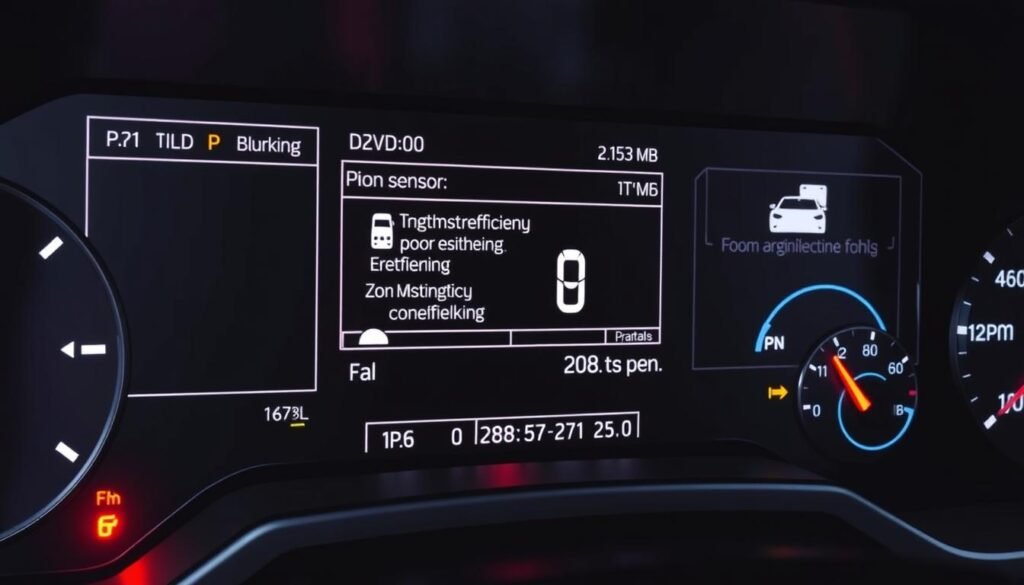
Common Signs of A Failing PCM in Ford F150 Trucks
Knowing the signs of a faulty pcm in your ford f150 is key to keeping it running well. There are several signs that show possible problems with the ford f150 pcm you should look out for.
- Ignition Problems: Having trouble starting the engine can mean the PCM might be failing. If starting your vehicle becomes a consistent issue, it’s time for a closer look.
- Transmission Issues: If your vehicle’s shifts feel off, it could be the PCM not talking right with the transmission. A vehicle that slips or pauses when shifting needs immediate attention.
- Engine Performance Problems: When the engine misfires or idles roughly, it could be the PCM messing up the fuel timing. This not only affects your drive but also hits your wallet through poor fuel use.
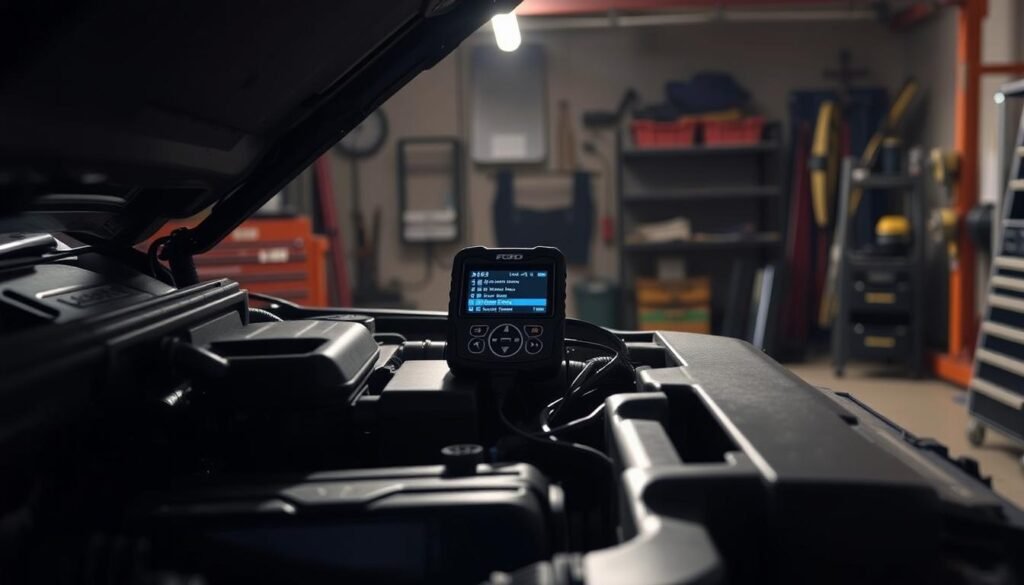
How To Diagnose Ford F150 PCM Issues
Finding PCM issues in your Ford F150 involves a few clear steps. It’s critical to spot these problems to keep your truck running well.
You can use tools like OBD2 scanners or do visual checks to find out what’s wrong with the ford f150 pcm.
Using OBD2 Scanners To Retrieve Diagnostic Codes
OBD2 scanners help you find diagnostic trouble codes (DTCs). Each code shows a different issue in the PCM.
When you hook the scanner up to your vehicle’s diagnostic port, you get these codes. This makes it easy to figure out what’s causing the performance issues.
Visual Inspections and Testing
Doing visual checks is key for finding issues with the ford f150 pcm. You should look for:
- Loose or damaged wiring
- Corrosion on connectors
- Physical damage to the PCM itself
Every related component needs to work right, since any problem can affect the PCM’s function. Fixing these issues helps with a full diagnosis. It also helps your Ford F150 work its best.
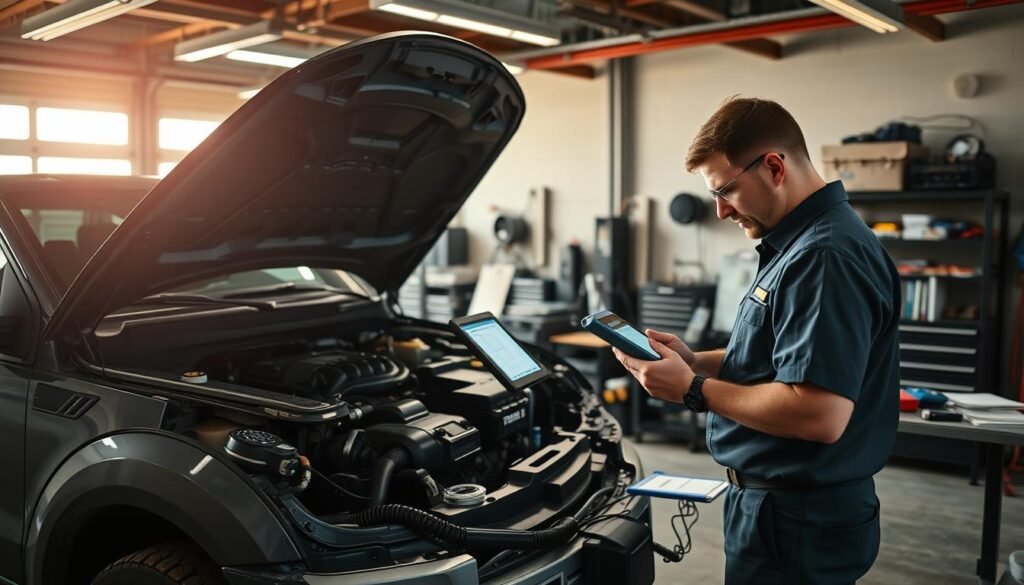
Identifying The Causes of Ford F150 PCM Problems
It’s essential to understand what causes PCM failures in a Ford F150. Recognizing these issues early on helps you avoid expensive fixes and keep your truck running longer.
Several things, like electrical problems and the environment, can cause these issues.
Voltage Overloads and Electrical Issues
Voltage overloads are a big problem for the PCM. A bad alternator or a sudden voltage spike can hurt the module.
Also, if the grounding isn’t done right, these issues can get worse. So, it’s key to check the electrical system often.
Environmental Factors Impacting The PCM
Being exposed to harsh environments can also harm the PCM. Extreme heat, too much moisture, and shaking can break it down over time.
To ensure your Ford F150 stays in good shape, protect it from these elements.
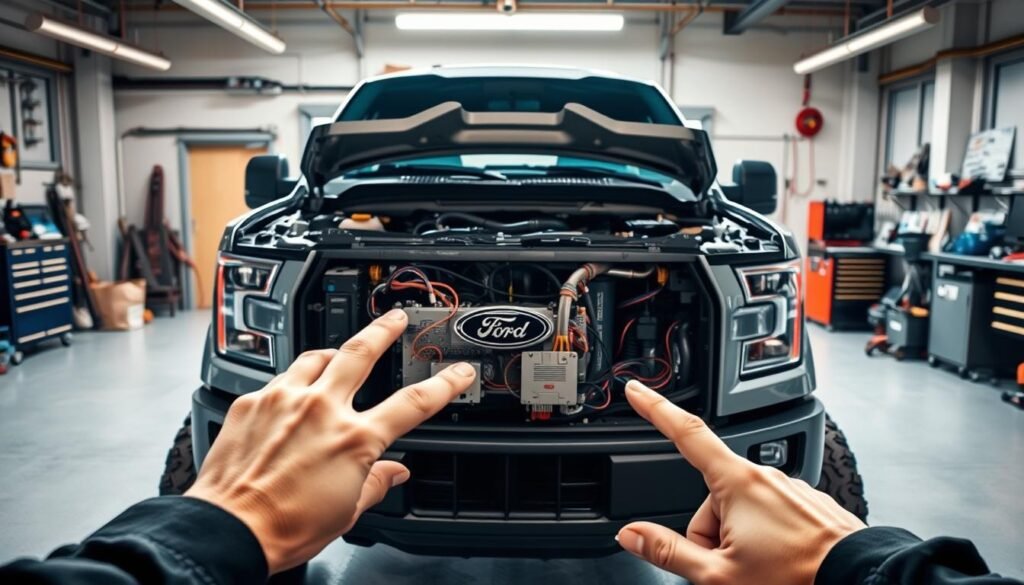
| Cause | Description | Impact on PCM |
|---|---|---|
| Voltage Overload | Occurs due to faulty alternators or electrical spikes. | Can lead to PCM failure and malfunction. |
| Improper Grounding | Unstable electrical connections can create disturbances. | Increases the risk of electrical shorts and component failure. |
| High Temperatures | Excessive heat exposure can degrade module components. | May result in performance issues or total shutdown. |
| Moisture Damage | Infiltration of water or humidity leads to corrosion. | Can cause electrical shorts or failure of the PCM. |
| Vibrations | Physical impact from road conditions affects module stability. | Can loosen connections and impact internal components. |
Troubleshooting Ford F150 PCM Failures
Guessing you might have a PCM failure in your Ford F150? Smart troubleshooting can really help.
Concentrating on the main things will boost your know-how. It helps in figuring out problems more effectively.
Performing Diagnostic Tests
An OBD-II scanner is key for checking ford f150 pcm issues. This gadget helps you get Diagnostic Trouble Codes (DTCs). These codes show what’s wrong in the system.
Look at the codes closely to know what they mean and what to do next. Doing these tests gets you closer to finding out what’s messing with your car’s performance.
Assessing Wiring and Connections
Checking wiring and connections is also important. Start by looking at the wires for any damage, loose parts, or rust. These can lead to PCM troubles.
Make sure all connections are tight. A deep check here might show problems you didn’t know about.
This can add to your PCM issues. Doing these steps with the tests can really help you fix the problems well.
Ford F150 PCM Replacement Cost and Options
If your Ford F150’s PCM stops working and can’t be fixed, it’s time to get a new one.
Knowing the cost for a Ford F150 PCM replacement and choosing between OEM or aftermarket are key. This guide helps understand price factors and aids in making the right choice.
Costs Associated with Replacement
The cost to replace a Ford F150’s PCM varies. It depends on the year of your truck, labor charges, and if you pick OEM or aftermarket parts.
Usually, it costs about $700 to $1,500. It’s a good idea to compare prices from different shops or dealers first.
OEM vs Aftermarket PCMs
When getting a replacement, you might ponder over OEM and aftermarket PCMs. OEM products are known for their match and dependability but cost more.
Aftermarket ones are cheaper but might not always work as well. Here’s a simple table to help see the differences:
| Feature | OEM PCMs | Aftermarket PCMs |
|---|---|---|
| Cost | Higher ($1,200 – $1,500) | Lower ($700 – $1,000) |
| Reliability | High | Variable |
| Warranty | Usually longer | Shorter or limited |
| Fitment | Perfect fit | Potential mismatches |
Preventive Measures and Maintenance Tips For PCM Longevity
To make your Ford F150’s PCM last, it’s important to follow certain steps. These maintenance tips can prevent big repair bills. And they’ll keep your truck running well.
Regular Inspections and Software Updates
Checking your PCM and its wiring often is key. Look for damage or rust on connectors early on. This helps a lot.
Also, keep your PCM’s software updated. Updates can fix problems and make your PCM work better.
Avoiding Environmental Damage
It’s important to protect your Ford F150 from bad weather. Park in a garage or use a cover to keep it safe from moisture and heat. Clean your truck often.
This stops harmful stuff from damaging your PCM and other parts. Doing this will help your truck last longer and stay in good shape.
| Preventive Measure | Description | Frequency |
|---|---|---|
| Regular Inspections | Check wiring and connectors for signs of damage or wear. | Every 3-6 months |
| Software Updates | Install manufacturer-recommended updates to improve PCM performance. | As released |
| Environmental Protection | Park in a garage or use a vehicle cover to prevent exposure to harsh conditions. | Always |
| Regular Cleaning | Wash your vehicle to remove corrosive substances from the PCM. | Monthly |
Experiencing Ford F150 PCM Failure Symptoms? Seek Professional Help
If your Ford F150 shows signs of PCM failure, it’s time to seek expert help. Specialists have the tools and skills to figure out what’s wrong. They can tell if you need a fix or a new PCM for your truck.
The Importance of Expert Diagnosis
Trained techs can find what’s really wrong with your PCM. They make sure all issues are found and fixed right.
This stops future problems and gets your vehicle back to running smoothly.
Learning Repair vs Replacement Options
After checking your PCM, you must choose between fixing or replacing it. This decision depends on how bad the damage is, the cost, and if a repair will last.
Sometimes fixing is cheaper, but other times, you need a new PCM.
Conclusion
Knowing about Ford F150 PCM failure signs and good diagnosis methods is key to keeping your vehicle in top shape.
Spotting PCM issues early helps make sure your truck stays reliable and runs well.
If you see a check engine light or notice your truck uses more fuel, it’s time for a detailed PCM check.
This could save you time and money. Making regular checks and maintenance part of your routine is smart. It helps you keep an eye on your PCM’s health.
Always reach out to expert mechanics if you’re unsure about PCM troubles. This way, you help your Ford F150 last longer. Plus, you deal with issues before they turn into big, expensive repairs.
FAQs
Q: What are common Ford F150 PCM failure symptoms?
A: Common signs include the check engine light turning on, less fuel efficiency, the engine stalling, problems starting, transmission troubles, and shifting that’s not smooth.
Q: How can I diagnose Ford F150 PCM issues?
A: Diagnosing PCM issues involves using OBD2 scanners for error codes. Also, visually check for any loose wires or corrosion.
Q: What causes Ford F150 PCM problems?
A: Causes often involve electrical issues leading to voltage overloads. High temperatures, moisture, and vibrations also play a role.
Q: What steps should I take to troubleshoot Ford F150 PCM failures?
A: First, run diagnostic tests with an OBD-II scanner. Next, look over the wiring and connections for wear or corrosion.
Q: How much does Ford F150 PCM replacement typically cost?
A: Replacing a PCM can cost between 0 and
FAQ
Q: What are common Ford F150 PCM failure symptoms?
A: Common signs include the check engine light turning on, less fuel efficiency, the engine stalling, problems starting, transmission troubles, and shifting that’s not smooth.
Q: How can I diagnose Ford F150 PCM issues?
A: Diagnosing PCM issues involves using OBD2 scanners for error codes. Also, visually check for any loose wires or corrosion.
Q: What causes Ford F150 PCM problems?
A: Causes often involve electrical issues leading to voltage overloads. High temperatures, moisture, and vibrations also play a role.
Q: What steps should I take to troubleshoot Ford F150 PCM failures?
A: First, run diagnostic tests with an OBD-II scanner. Next, look over the wiring and connections for wear or corrosion.
Q: How much does Ford F150 PCM replacement typically cost?
A: Replacing a PCM can cost between $700 and $1,500. This depends on your vehicle’s model and the labor fees.
Q: Should I choose OEM or aftermarket PCMs?
A: OEM parts guarantee reliability but can be pricier. Aftermarket PCMs save money but might not offer the same quality.
Q: What preventive measures can I take to extend my Ford F150 PCM’s life?
A: Regularly inspect wiring and connectors, update software, and store your vehicle in a good environment. This helps avoid damage from environmental factors.
Q: When should I seek professional help for PCM issues?
A: Seek expert help if you notice PCM failure symptoms. Certified technicians have the right tools and knowledge for accurate diagnosis.
,500. This depends on your vehicle’s model and the labor fees.
Q: Should I choose OEM or aftermarket PCMs?
A: OEM parts guarantee reliability but can be pricier. Aftermarket PCMs save money but might not offer the same quality.
Q: What preventive measures can I take to extend my Ford F150 PCM’s life?
A: Regularly inspect wiring and connectors, update software, and store your vehicle in a good environment. This helps avoid damage from environmental factors.
Q: When should I seek professional help for PCM issues?
A: Seek expert help if you notice PCM failure symptoms. Certified technicians have the right tools and knowledge for accurate diagnosis.

